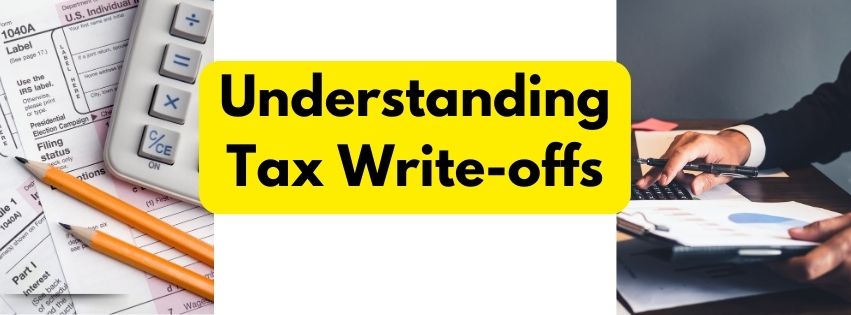Understanding Tax Write-offs: A Guide for Real Estate Investors
In the world of real estate investment, understanding tax write-offs could mean the difference between a property that’s just okay and one that’s truly profitable. Write-offs can significantly influence the bottom line for investors, but they require a deep understanding of tax codes, the property investment landscape, and your particular financial situation. This guide explores the complexities of write-offs, shedding light on how they can be leveraged to enhance your returns.
Navigating the Real Estate Tax Deduction Loop
The term “write-off” conveys the idea of removing an expense from taxable income, and in the realm of real estate, there are numerous write-offs available to savvy investors. By claiming deductions, you lower your overall tax liability, which effectively increases your property’s net income and can positively affect your cash flow.
Capitalizing on Depreciation
Depreciation is often referred to as a “phantom expense.” It accounts for the gradual decrease in value of a property over time due to wear and tear, obsolescence, or age. Despite not being an upfront cost, investors can use it as a write-off over the property’s useful life, thus reducing taxable income.
The key to maximizing this deduction is knowing and understanding the different types of property classifications and their associated depreciation schedules. Residential real estate, for example, generally allows for depreciation over 27.5 years, while commercial properties typically depreciate over 39 years. Faster depreciation methods like cost segregation can be particularly advantageous for commercial properties with significant personal property elements, enabling you to front-load many tax benefits.
The Interest Expense Advantage
The interest on loans used for the purchase or improvement of a property is another substantial write-off. Mortgages are structured so most interest payments occur in the early years of the loan when the highest portion of your payment goes toward interest, making this deduction especially lucrative in the initial phases of property ownership.
Additionally, refinancing can affect the deductibility of interest. When refinancing to include a higher loan amount, it’s important to segregate the funds from the refinancing specifically used for improvements to ensure interest can be attributed to the cost of these improvements.
Keeping Up with Repairs and Maintenance
Costs associated with repairs and maintenance are deductible expenses, but it’s crucial to distinguish these from improvements, which are capitalized and recovered through depreciation. Repairs keep your property in good condition and don’t add to its value, while maintenance reflects ongoing services.
An important distinction here is that expenses must be considered “ordinary” and “necessary” under the IRS guidelines. For real estate, this means costs that are common and expected in the ownership of any property used for the production of rental income.
Travel Expenses for Real Estate
Traveling for your real estate business can lead to deductions regarding transportation, meals, and accommodations related to your investment activities. This might involve visiting existing properties, scoping out potential investments, or meeting with clients or contractors.
To claim deductions in this category, maintaining detailed records is imperative. The IRS requires documentation that outlines the business purpose, date, and amount of each expense, so keeping a logbook or using a dedicated credit card for business travel can simplify the process.
Working from Home: The Home Office Deduction
In recent years, the home office deduction has become increasingly relevant as more people work remotely. Real estate investors who do administrative work from a designated home office can potentially claim this deduction, covering a portion of home-related expenses like mortgage interest or utilities.
Eligibility revolves around exclusivity and regularity of use. The space must be used solely for business purposes and must be the primary place for conducting business. The IRS provides a simplified method which avoids the need for complex calculations, making it more accessible to claim.
Strategies for Taxation Satisfaction
While the tax code is complex, there are straightforward strategies investors can use to ensure they’re not leaving money on the table.
Meticulous Record-Keeping
The importance of records cannot be overstated. A meticulous accounting of expenses helps in claiming all eligible write-offs and serves as evidence to substantiate your claims in the event of an audit.
Software like QuickBooks or digital receipt scanning can streamline this process, and maintaining both digital and physical records provides redundancy in case of an audit.
Partner with Tax Professionals
Navigating tax laws is challenging, but tax professionals are well-versed in identifying opportunities for write-offs and can offer valuable advice tailored to your investment portfolio.
An accountant specializing in real estate can be an invaluable resource, especially as tax laws change. Be sure to work with someone experienced and proactive, not just reactive when it comes to tax planning.
Stay in the Know: Tax Laws and Updates
The tax landscape is dynamic, with laws that can change annually. Commit to staying informed about the latest tax developments, including potential deductions for new property investments or changes that impact existing write-offs.
There are several platforms where investors can find reliable tax information, including the IRS website, industry-specific publications, and tax blogs. Engaging in ongoing education is an effective way to ensure you’re taking advantage of every deduction.
The Ripple Effect on Real Estate Investment Returns
The impact of tax write-offs on investment returns is profound. By lowering your tax burden, more money stays in your pocket, which directly increases your cash flow and can enhance your overall return on investment.
Understanding the Math
If you have $10,000 in write-offs and you’re in a 20% tax bracket, that’s $2,000 of tax savings. Over the life of your investment, these write-offs can add up to substantial savings, offering a powerful compounding effect when reinvested into your portfolio.
Case Studies and Exemplary Scenarios
Real-world examples can illustrate how various write-offs translate to actual savings and increased ROI. Consider a case study where two similar properties generate the same income, but due to strategic use of write-offs, one investor experiences significantly higher after-tax cash flow and, subsequently, a better overall return.
Long-Term Thinking and Tax Planning
Investors may also consider long-term tax planning strategies, such as a 1031 exchange to defer capital gains taxes and keep more money working for them in the market. Additionally, contributing to tax-deferred retirement accounts or taking advantage of Opportunity Zones can all be part of a comprehensive tax planning approach.
Putting Pen to Paper
Engaging with the tax aspect of real estate investment may seem daunting, but with strategic planning and attention to detail, it can yield substantial benefits. By understanding and leveraging the various write-offs available, investors can maximize their property’s potential and ultimately their own financial well-being.
The key takeaway is that tax write-offs are not just a bureaucratic necessity; they’re a powerful tool in a real estate investor’s arsenal. When wielded with knowledge and foresight, they contribute to a robust and sustainable investment strategy. Whether you’re an experienced portfolio manager or just dipping your toes into the real estate market, proactive tax planning can make your properties work harder for you.
In conclusion,
Tax Write-offs not only reduce the taxes you pay but also increase the income you get to keep. They are a vital component of any real estate investment strategy and can significantly boost your bottom line. Take the time to understand the different types of write-offs available, keep detailed records of all your expenses, and work closely with tax professionals to ensure you’re making the most out of your investments. With the right approach, tax season can be a time of celebration rather than trepidation, as you watch your real estate returns ascend to new heights.

